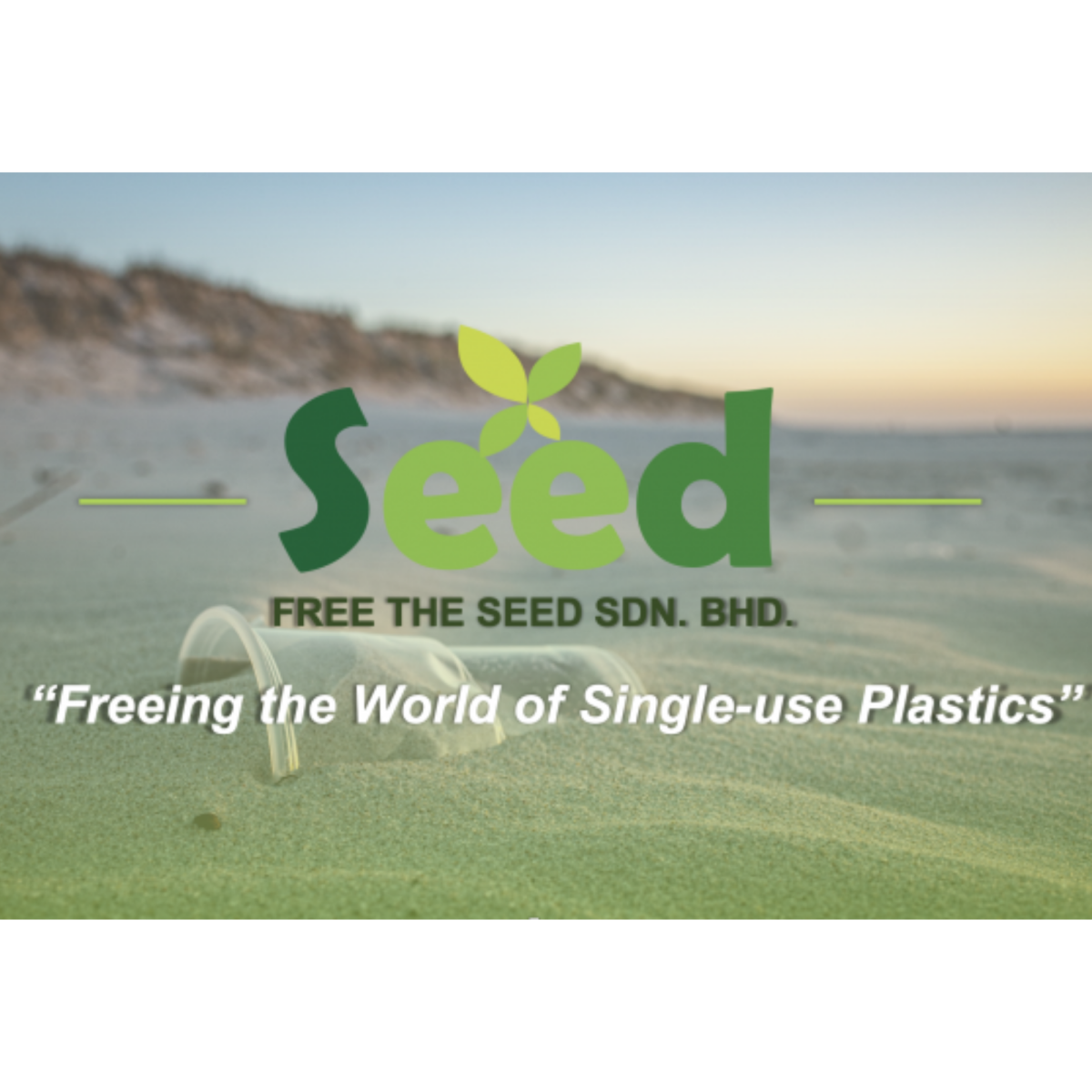Packaging with a Positive Impact: Free the Seed’s founder and CEO Ramaness Parasuraman
Founded by Ramaness Parasuraman in 2009, Malaysian company Free The Seed creates packaging products made of cellulose fibers from rice paddy straw using biotechnology and other scientific formulations. The products are designed to be biodegradable and compostable, water-resistant, oil and grease resistant and oven- and microwave-safe. Free The Seed packaging products are used across consumer goods, bio-industrial and bio-medical applications.

Free The Seed was named the 2014 national winner of the Global Cleantech Innovation Program (GCIP) for SMEs in Malaysia. Implemented by the Malaysian Industry-Government Group for High Technology (MIGHT) and the United Nations Industrial Development Organization (UNIDO), GCIP aims to develop a platform to nurture and accelerate the next generation of Malaysian and global cleantech by leveraging the power of entrepreneurship to address challenging energy, environmental and economic problems.
How did Free The Seed begin?
During my career as a Carbon Emissions Validator, I encountered multiple cases of environmental pollution and degradation caused by mankind. The effects of mass air pollution within the agriculture industry were particularly concerning, as they have a significant impact on poor air quality and climate change. In Malaysia, the burning of rice paddy straw as waste is one of the biggest generators of agricultural air pollution.
Knowing that there was also a growing global need for sustainable packaging alternatives, I decided to venture into the world of entrepreneurship, using biotechnology to create an eco-friendly business transforming waste paddy straw into biodegradable, compostable packaging. In partnership with several tech-based accelerators in Malaysia, we developed an innovative process that uses enzymes to convert the straw into cellulose fibrous pulp. Through a proprietary process, we then transform the pulp into a range of packaging products.
Today Free The Seed generates more than 10,000 tons of sustainable packaging products from a few hundred tons of rice paddy straw annually, with plans to expand our operations to the US, UK, Europe and greater Asia.
Free The Seed packaging is Cradle to Cradle Certified® at the Silver level, and the products have achieved a Gold Material Reuse rating. What properties make rice paddy straw such a sustainable and circular material for packaging?
Rice paddy straw has historically been treated as agricultural waste by Malaysian farmers. Every year, more than 2.5 million tons of straw are burned by farmers, yet the straw’s cellulose fibers are ideal for creating packaging for food, retail and other applications. Because the straw is a by-product of the rice farming process, it is also an abundant and renewable source of raw material.
The cellulose and nano-cellulose of the paddy straw fiber is enriched with flexible structures of pulpable fiber to obtain greater yield in the production process. In addition, the impregnation of our proprietary technology of enzymatic pulping from other biomass material creates a perfect ESG solution towards a sustainable, circular economy and decarbonization.
The manufacture of packaging from sustainable, regenerative feedstock can create a domino effect of positive impacts both socially and environmentally. What are some of the positive impacts generated by the use of rice paddy straw and Free The Seed’s business model?
Our business model, which pays farmers for rice straw they previously considered waste, is creating both an economic and an environmental benefit for Malaysia and for the reduction of carbon entering the atmosphere as a result of rice farming.
More than 300,000 hectares of land are devoted to rice paddy production in Malaysia. After each rice harvest, farmers burn the paddy straw to prepare the soil for the next crop. While this practice can help release nutrients back into the soil, the volume of material being burned creates clouds of smoke and pollution. In turn, the haze often blocks out the sun, hampers commercial flight and airport operations, and creates respiratory problems for people in nearby villages and towns.
Through agreements with state farming associations, Free The Seed’s business model pays farmers an average of $300 USD per year for rice straw they previously considered waste. Today, more than 1,300 farmers are benefiting from the scheme, and more than 10,800 hectares of rice fields are now zero open burning as a result.
Demand for sustainable packaging is growing worldwide. What trends are you noticing with regard to demand for sustainable packaging in particular market sectors or regions?
Bans on single-use plastics and other policies across industries and countries around the world have opened up the sustainable packaging market as the next commodity. Through partnership with our customer BIO4PACK GmbH in the Netherlands and Germany we are already seeing exponential market growth. With North America, Europe and the Far East now leading even stronger ESG and SDG agendas, we anticipate a continuing demand in safe, circular and sustainable packaging materials and products.
What is your vision for the future of Free The Seed?
Our vision is to become the unicorn of the sustainable packaging industry by becoming one of the top ten green packaging companies in the world, and delivering products to customers in Europe and North America as well as greater Asia. Driven by this vision, we are on the right track of our journey in our goal and mission to decarbonize 100 million kg of CO2 from the open-burning of paddy fields in Asia over the next 5 years.